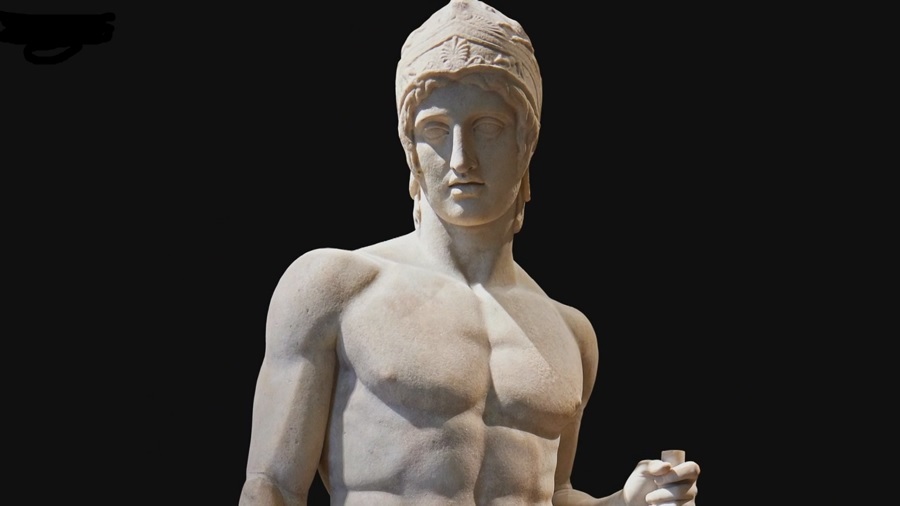Mars Uncovered: Ancient God of War – Bettany Hughes investigates the enduring relationship between warfare and worship, by following the trail through time of the ancient god of war, Mars. She begins in Carthage, site of one of the most significant and bloodiest victories in the history of the Roman Empire and explores the vital role of Mars in Rome’s imperial expansion.
Visiting the British Museum, Bettany sees, at first hand, the earliest known evidence of human warfare – a 13,000-year-old graveyard in which many of the bodies showed signs of violent deaths. With bodies so carefully buried, Bettany asks if ritualising and celebrating war is a way of bringing societies together – of creating ‘them’ and ‘us’.
Back in North Africa, at the spectacular Roman amphitheatre in El Djem, Bettany examines the symbolic role of the ‘ludi martiales’, or gladiatorial games, and finds out about the challenge posed by early Christianity to this celebration of war and ritualised death. Travelling to Jordan, she then tells the story of one of the bloodiest episodes in Crusader history and examines how the Christian notion of Holy War played out in practice, with Mars still very much a presence. She then tracks how the figure of Mars was used by artists such as Botticelli and Rubens to examine the inevitability of war, and whether peace might not proffer a better option. Following the World Wars, the red scare, and contemporary conflict in the Middle East, Bettany considers how Mars’s dominion has been sustained and asks whether the benefits of war still outweigh the horrors.
Mars Uncovered: Ancient God of War
In ancient Roman religion and myth, Mars (Latin: Mārs, was the god of war and also an agricultural guardian, a combination characteristic of early Rome. He was second in importance only to Jupiter and he was the most prominent of the military gods in the religion of the Roman army. Most of his festivals were held in March, the month named for him (Latin Martius), and in October, which began the season for military campaigning and ended the season for farming.
Under the influence of Greek culture, Mars was identified with the Greek god Ares, whose myths were reinterpreted in Roman literature and art under the name of Mars. But the character and dignity of Mars differed in fundamental ways from that of his Greek counterpart, who is often treated with contempt and revulsion in Greek literature.
Mars was a part of the Archaic Triad along with Jupiter and Quirinus, the latter of whom, as a guardian of the Roman people, had no Greek equivalent. Mars’ altar in the Campus Martius, the area of Rome that took its name from him, was supposed to have been dedicated by Numa, the peace-loving semi-legendary second king of Rome. Although the center of Mars’ worship was originally located outside the sacred boundary of Rome (pomerium), Augustus made the god a renewed focus of Roman religion by establishing the Temple of Mars Ultor in his new forum.




